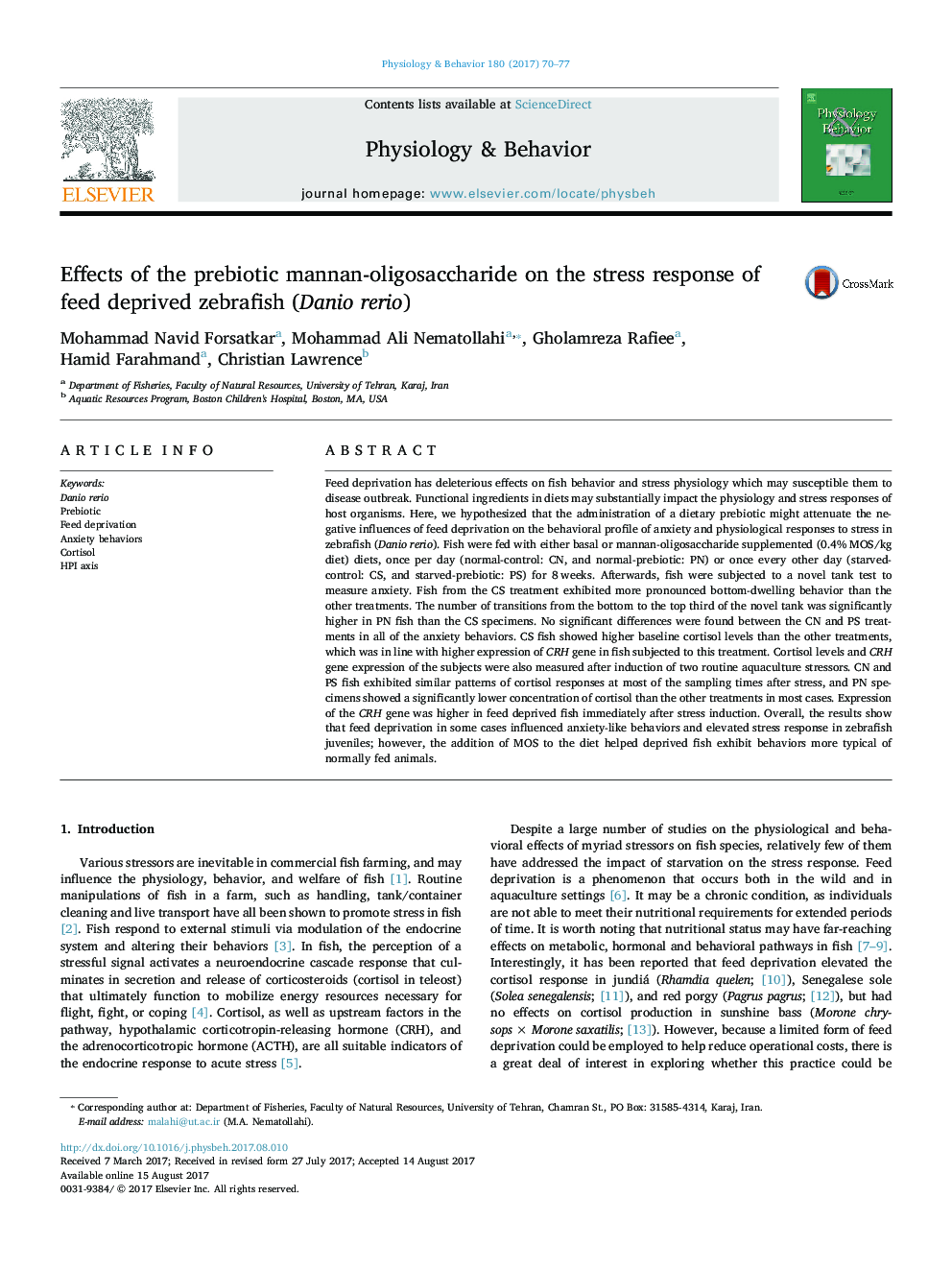| Article ID | Journal | Published Year | Pages | File Type |
|---|---|---|---|---|
| 5593599 | Physiology & Behavior | 2017 | 8 Pages |
Abstract
Feed deprivation has deleterious effects on fish behavior and stress physiology which may susceptible them to disease outbreak. Functional ingredients in diets may substantially impact the physiology and stress responses of host organisms. Here, we hypothesized that the administration of a dietary prebiotic might attenuate the negative influences of feed deprivation on the behavioral profile of anxiety and physiological responses to stress in zebrafish (Danio rerio). Fish were fed with either basal or mannan-oligosaccharide supplemented (0.4% MOS/kg diet) diets, once per day (normal-control: CN, and normal-prebiotic: PN) or once every other day (starved-control: CS, and starved-prebiotic: PS) for 8Â weeks. Afterwards, fish were subjected to a novel tank test to measure anxiety. Fish from the CS treatment exhibited more pronounced bottom-dwelling behavior than the other treatments. The number of transitions from the bottom to the top third of the novel tank was significantly higher in PN fish than the CS specimens. No significant differences were found between the CN and PS treatments in all of the anxiety behaviors. CS fish showed higher baseline cortisol levels than the other treatments, which was in line with higher expression of CRH gene in fish subjected to this treatment. Cortisol levels and CRH gene expression of the subjects were also measured after induction of two routine aquaculture stressors. CN and PS fish exhibited similar patterns of cortisol responses at most of the sampling times after stress, and PN specimens showed a significantly lower concentration of cortisol than the other treatments in most cases. Expression of the CRH gene was higher in feed deprived fish immediately after stress induction. Overall, the results show that feed deprivation in some cases influenced anxiety-like behaviors and elevated stress response in zebrafish juveniles; however, the addition of MOS to the diet helped deprived fish exhibit behaviors more typical of normally fed animals.
Related Topics
Life Sciences
Biochemistry, Genetics and Molecular Biology
Physiology
Authors
Mohammad Navid Forsatkar, Mohammad Ali Nematollahi, Gholamreza Rafiee, Hamid Farahmand, Christian Lawrence,
